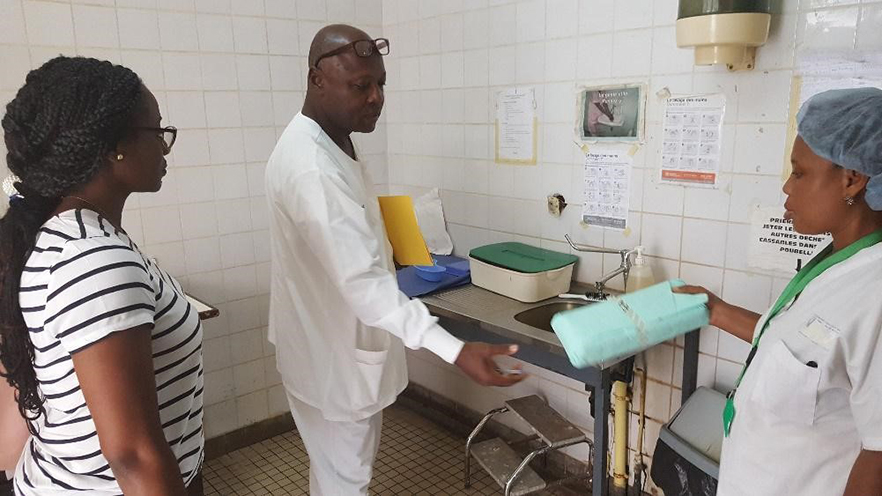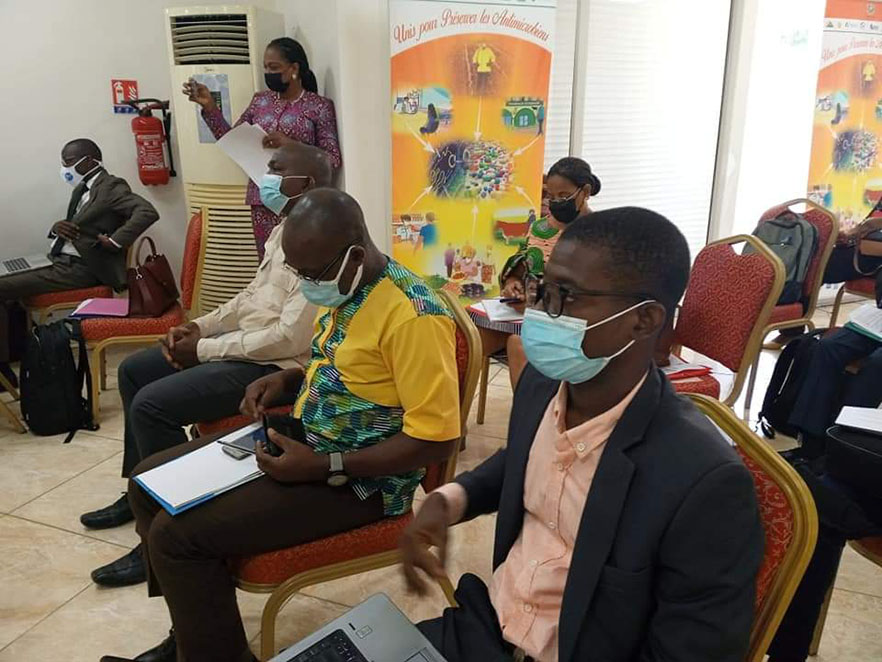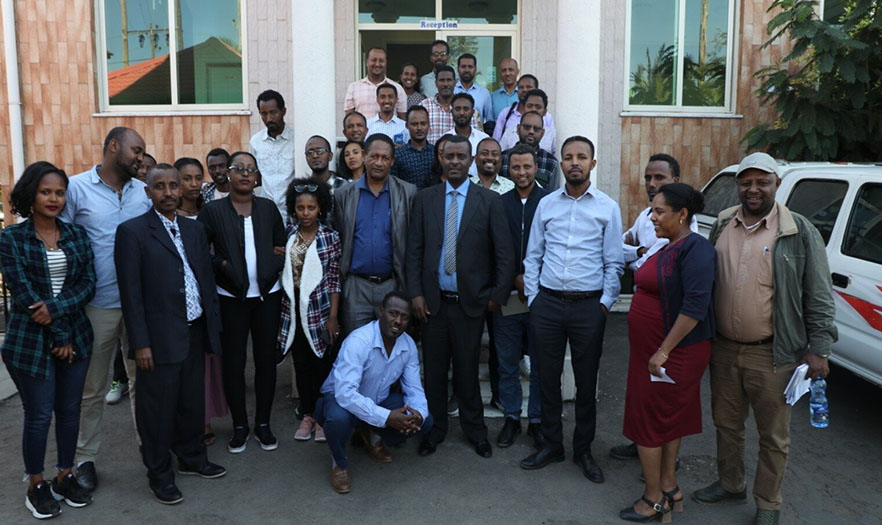Antimicrobial Resistance: Let’s Stop the Next Pandemic Before It Is Too Late
By Cecilia Muiva, MTaPS Technical Strategy Lead, East Africa, and Seydou Doumbia, MTaPS Technical Strategy Lead, Francophone Africa

The dangers of antimicrobial resistance (AMR) are not new. When a drug doesn’t defeat the disease it is supposed to kill, the germ is allowed to grow. Unfortunately, while antimicrobial consumption rose by 65% between 2000 and 2015, largely driven by low- and middle-income countries (LMICs), little has been done to combat AMR effectively. As a result, antimicrobials have become more expensive for patients, limiting the choices for treatment and diminishing patients’ confidence in the capacity of health facilities to treat them.
Prevention before cure: The importance of infection prevention and control
Health care-acquired infections (HAIs) are one of the most common adverse events during care delivery. According to the World Health Organization (WHO), at any one time, 10% of patients in LMICs will acquire at least one HAI, although a large percentage of HAIs can be avoided through infection prevention and control (IPC) measures.
To address this issue, WHO recommended guidelines to be used by countries to strengthen their IPC measures and provided tools to assess IPC effectiveness at the facility level. Using these tools, the USAID Medicines, Technologies, and Pharmaceutical Services (MTaPS) Program conducted a situational assessment of IPC practices in health facilities. This assessment led to several findings, including workload and staffing insufficiencies and an absence of functional IPC committees, that were due in part to a lack of funding.
Following these assessments, MTaPS focused on efforts to address the observed gaps. In Cameroon, MTaPS supported the Ministry of Public Health (MOPH) to establish IPC committees in six pilot health facilities in 2020 by training staff to create, implement, and manage an IPC committee. Also in 2020, an on-site assessment of IPC-related indicators, including hand washing and triage of patients, found that all six pilot facilities were compliant with health security procedures. Following this initial success, the MOPH shared a circular letter on December 4, 2020, urging all health centers to follow the guidelines to establish their own IPC committees.

Assessment of compliance with IPC guidelines in the laundry room of Douala General Hospital, where clothing and material are sterilized. Photo credit: Alphonse Acho, MTaPS Senior Technical Advisor
Containing AMR requires going beyond health facilities
While strengthening practices in health facilities is a critical first step, actions are also needed beyond those facilities, and one challenge that most countries face is securing buy in from stakeholders on how to address AMR in a coordinated manner.
To overcome this issue, stakeholders need to understand the full scope of health systems and the impact of AMR within and across sectors. For example, in Mali, local experts voiced their concerns regarding a systems strengthening approach, indicating that the focus should be on delivering health commodities to people. Unfortunately, only focusing on commodity supply can hide behavioral issues, such as a misuse of antimicrobials and other medical products, that affect patient safety and weaken the whole supply chain.
It is critical to involve all professionals down to pharmacists at the community level, who are the first points of contact with the community. Professional associations should be a key area of focus for these types of interventions. In Kenya, MTaPS worked with several health professional associations to develop and implement two continuing professional development and re-licensure courses on IPC and antimicrobial stewardship (AMS). Through this collaboration, more than 3,000 health professionals were trained on good IPC practices, and more than 1,000 on AMS to promote the prudent use of antimicrobials. MTaPS used a similar approach in Côte d’Ivoire. The program worked with the Ordre des Pharmaciens, an influential civil society organization for private pharmacists, to provide training on AMR in September 2021. Following this training, the Ordre des Pharmaciens decided to include AMR in its mandatory 20-hour continuing education course for annual accreditation. This will help pharmacists master the necessary skills to prescribe and dispense drugs, such as not providing antimicrobials over the counter without a prescription, and provide clear guidance to patients, such as disposing of old antibiotics.

Participants during the AMR training provided to pharmacists in Côte d’Ivoire. Photo credit: Hérodias Ahimon, MTaPS Senior Technical Advisor
Spread awareness, stop resistance: A call to action
To maintain the usefulness of antibiotics, the general public has to understand that there is a problem. Stopping AMR requires strengthening public awareness around best practices, and Ethiopia has provided many examples of how to do so. In 2019, MTaPS collaborated with the Ministry of Health (MOH) to orient media professionals and the Public Relations and Communications Directorate of the MOH on AMR-related issues so they can better understand this topic and disseminate accurate information. MTaPS has also targeted segments of the population that are often overlooked, including women and youth groups, equipping them with basic AMR knowledge so they can sensitize their communities on the subject.
The final point we wanted to make is that AMR is not just a health issue. One sector we need to focus on is business and industry operators. Most antibiotics in this sector are used not to treat animals but to promote growth. Unfortunately, there is no sensitization or knowledge on the use of drugs for animals and their implications for human health. Uganda provides an interesting example: In addition to developing guidelines on infection prevention and appropriate antimicrobial use, MTaPS supported the development of the country’s first national essential veterinary medicines list, which is receiving great interest from international organizations. This list gives clear indications on what antibiotics are available and where to find them and shares who should administer them and when, providing important safeguards to people and their livestock.
The work in Central, East, and West Africa is important to demonstrate the progress being made in our fight against AMR and show that collaborative partnerships, reaching out to people outside the health sector, and a systems strengthening approach are keys to avoiding AMR becoming the next global crisis, which could far overshadow the consequences of COVID-19.

Journalists who received AMR training in Ethiopia. Photo credit: MTaPS staff